How to Choose the Right Heavy Duty Work Table for Your Business Needs
When selecting the appropriate heavy duty work table for your business, it is essential to consider various factors that will ensure the table meets your operational requirements. A heavy duty work table is more than just a sturdy surface; it serves as a crucial component in enhancing productivity and efficiency in your workplace. Whether you're in manufacturing, warehousing, or any other industry that demands durability, the right work table can withstand the rigors of daily tasks while providing reliable support. This guide will explore the different types of heavy duty work tables available, their specifications, and the specific business needs they address. By understanding these elements, you can make an informed decision that not only supports your current operations but also helps future-proof your business.
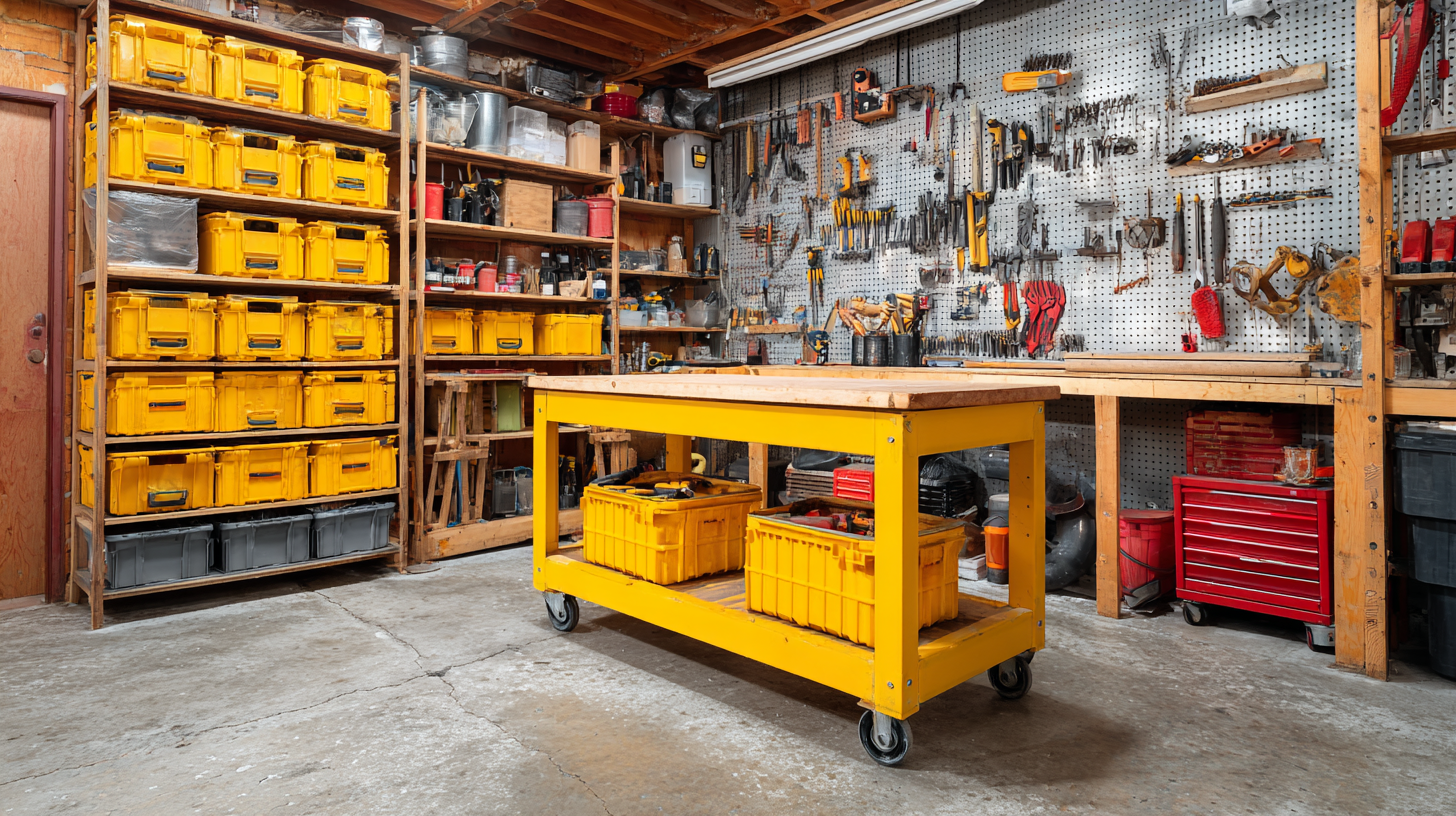
Key Factors to Consider When Selecting a Heavy Duty Work Table for Your Business
When selecting a heavy duty work table for your business, several key factors should be considered to ensure that it meets your operational needs. Firstly, the size and dimensions of the work table are crucial. It should fit comfortably within your workspace, allowing enough room for personnel and equipment. Assess the type of tasks that will be performed on the table to determine the appropriate surface size and height, ensuring it promotes efficiency and ease of use.
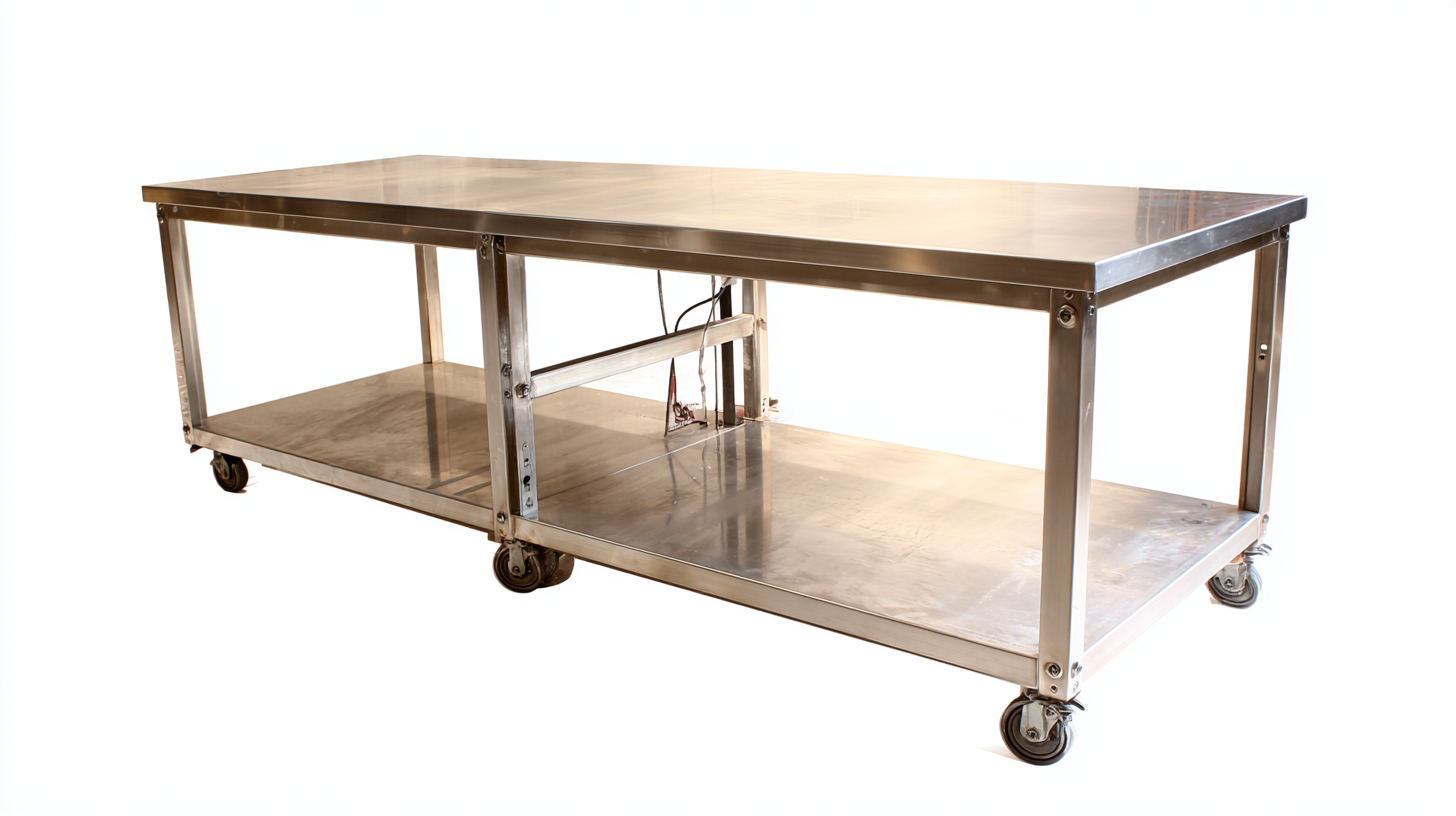
Durability and material are also paramount considerations. Heavy duty work tables are typically made from various materials such as steel, aluminum, or laminated surfaces, each offering different levels of strength and resistance to wear. Depending on the nature of your work, choose a table that can withstand the demands of your environment, be it high loads, chemicals, or heavy impacts. Additionally, check for features like adjustability and mobility, which can enhance versatility and ease of use in dynamic work settings. By carefully evaluating these factors, you can select a work table that not only meets your business needs but also enhances productivity.
Top Materials for Durability and Performance in Heavy Duty Work Tables
When selecting the right heavy-duty work table for your business, focusing on the materials used can significantly impact durability and performance. Steel and aluminum are among the top choices for their strength and longevity. Steel provides excellent resistance to heavy weights and is ideal for industrial environments, while aluminum offers a lighter option that still maintains high durability, making it suitable for mobile workstations.
Tips: Consider the environment where the work table will be used. For areas exposed to moisture or chemicals, stainless steel is an excellent choice due to its corrosion resistance. Additionally, look for tables with reinforced edges and legs to enhance stability and support for heavy loads.
Furthermore, composite materials are emerging as a popular alternative, combining the benefits of both strength and weight reduction. These materials are designed to withstand rigorous use while providing a clean, easy-to-maintain surface. As industries continue to evolve, keeping an eye on market trends, such as the solid tire market projected to grow from $31.9 billion in 2024 to $44.6 billion by 2032, can provide insights into the durability requirements necessary for modern workspaces.
Best Features to Look for in Heavy Duty Work Tables for Your Industry Needs
When selecting a heavy-duty work table for your business, it’s essential to consider the specific features that will best suit your industry needs. One of the most important features is weight capacity. Ensure that the table can support the tools, materials, or equipment you regularly handle. Look for tables with sturdy construction, ideally made from heavy-gauge steel or reinforced work surfaces, which provide added durability and stability.
Another vital feature to consider is mobility. Depending on your workspace, you might need tables with casters that allow for easy movement or adjustable height options for ergonomic benefits. In environments where cleanliness is paramount, selecting tables with easy-to-clean surfaces and finishes that resist chemicals and scratches can greatly enhance your workflow.
**Tips:**
Consider your workflow when choosing a layout. If your tasks require multiple people or tools, opt for larger tables with ample surface space. Also, remember to assess your storage solutions—tables with built-in shelving or drawers can help keep your workspace organized and efficient.
How to Choose the Right Heavy Duty Work Table for Your Business Needs
| Feature | Importance | Recommended Specification | Suitable Industries |
|---|---|---|---|
| Material | Durability and resistance to wear | Stainless Steel or Heavy Gauge Steel | Manufacturing, Food Preparation |
| Weight Capacity | Support for heavy equipment and materials | 1500 lbs or higher | Automotive, Assembly Lines |
| Adjustability | Customization for ergonomic use | Height-adjustable or modular design | Laboratories, Electronics |
| Surface Finish | Ease of cleaning and maintenance | Powder-coated or stainless finish | Medical, Food Industry |
| Mobility | Flexibility in workspace arrangement | Locking wheels or portable design | Warehousing, Retail |
Comparative Analysis of Popular Heavy Duty Work Table Brands in the Market
When selecting a heavy-duty work table for your business needs, a comparative analysis of popular brands can guide you in making an informed decision. Several factors should be considered, including the materials used in construction, load capacity, and adaptability to various workspace environments. Brands that excel in craftsmanship typically offer tables made from durable steel or high-grade wood, ensuring long-term resilience and stability.
Additionally, user feedback on specific models can provide valuable insights into real-world performance. Brands that incorporate ergonomic designs are particularly favored for their ability to enhance worker comfort and productivity. Evaluating warranties and customer support also contributes to a brand's reputation, as businesses seek reliable partners in their operational setup. Overall, understanding these distinctions among heavy-duty work table brands will help you identify the best option tailored to your unique business requirements.
Comparative Analysis of Heavy Duty Work Table Features
The chart below compares the load capacity, surface material quality, and price of various heavy-duty work tables to help you make informed decisions for your business needs.
Essential Maintenance Tips for Prolonging the Life of Your Heavy Duty Work Table
Maintaining a heavy-duty work table is crucial for ensuring its longevity and performance in a demanding work environment. First and foremost, regular cleaning is essential. After each use, wipe down the surface to remove dust, debris, and any spills that could lead to corrosion or staining. For tough stains, use non-abrasive cleaners to avoid scratching the surface. Additionally, inspect the table for any signs of wear, such as loose bolts or rust, and address these issues promptly to prevent further damage.
Another important maintenance tip is to ensure the work table is situated on a level surface. An uneven tabletop can lead to instability, which not only compromises the quality of your work but can also pose safety risks. If necessary, use shims or adjustable feet to level the table. Lastly, consider applying a protective coating periodically, depending on the material of your table. This can enhance resistance to chemicals and enhance its overall durability, helping your work table withstand the rigors of daily use. These simple yet effective maintenance practices can significantly prolong the life of your heavy-duty work table, ensuring it remains a reliable asset for your business.
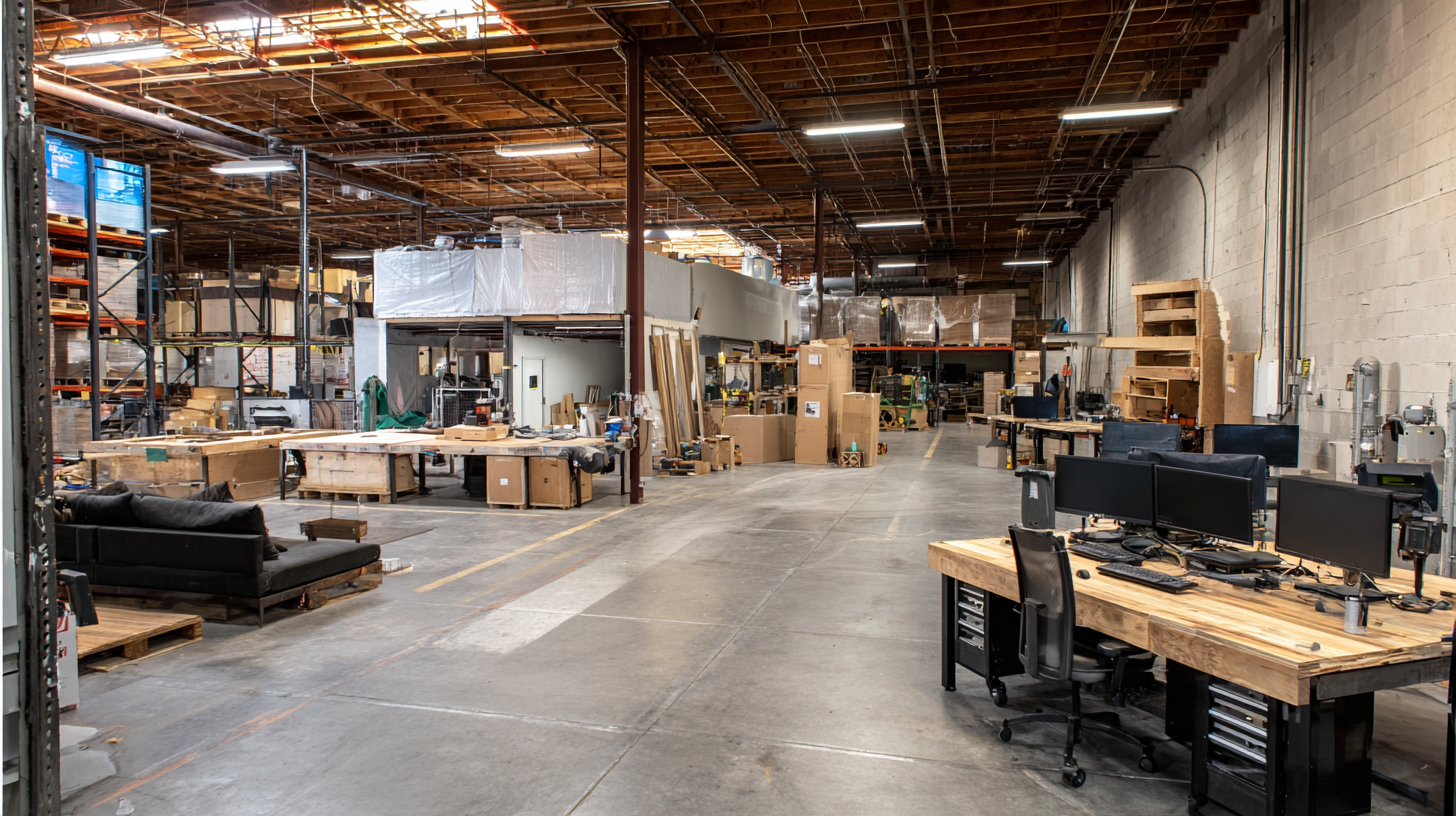
Related Posts
-
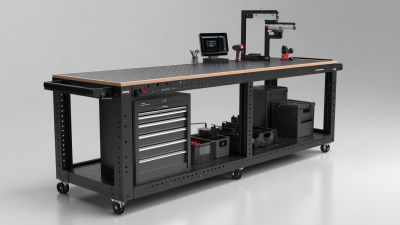
How to Choose the Perfect Rolling Workbench for Your Workspace
-
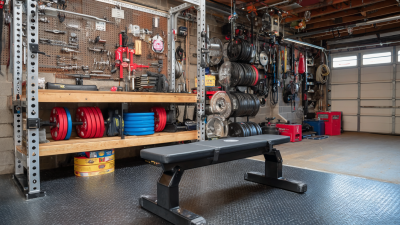
Envisioning the Future of Garage Workspaces: The Evolution of the Best Garage Bench
-
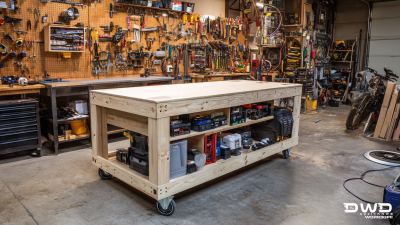
What Makes the Best Rolling Workbench Essential for Every Workshop
-
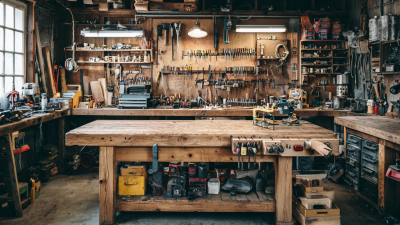
2025 Market Insights: The Evolution of the Best Rolling Work Bench in Global Industries
-

Top Strategies for Maximizing Efficiency with Work Bench on Wheels
-

Unleashing the Power of Chinese Manufacturing for the Best Metal Work Benches Worldwide
Footer
Resource Center
Contact Us
1901 West Main Street
Washington, MO 63090
Main Directory: 1-800-227-4873
Email: sale@pangcofurniture.com
Affiliations


